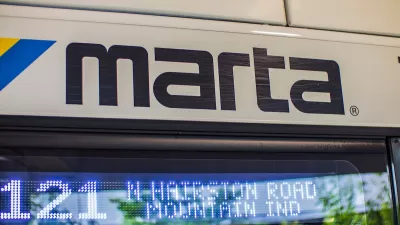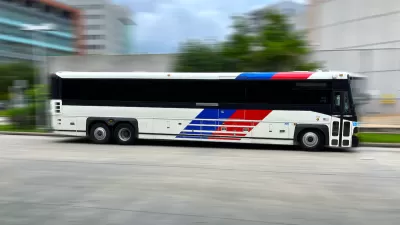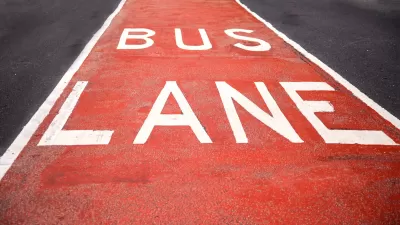A local leader in the suburban Maryland/Washington DC area proposes aggressive use of "rapid buses" in dedicated lanes to accommodate growth, like other jurisdictions in the U.S.
"Montgomery County Council member Marc Elrich thinks he might have found a way to let the suburbs grow without putting more cars on the roads: Build a rapid bus system that can speed past traffic.
Rapid buses, sleek vehicles that look like trams or light-rail cars, run on alternative fuels and can include comfortable seating, WiFi, multiple doors and cashless fares. They operate in Boston, Chicago, Los Angeles, Miami and Pittsburgh, among other cities. They are planned for a dozen other jurisdictions, including New York, Atlanta, Albany, N.Y., and Hartford, Conn. Rapid buses are used in Australia, China, England, France and South America.
In the next decade, thousands more people are expected to move into Montgomery, pushing the county's population to more than 1 million. Despite expected increases in housing density that will make parts of the county look like small cities, there is little urban-style infrastructure, such as sidewalks or closely spaced Metro stops. Many residents get in their cars for the shortest of trips.
A rapid bus system may be the cheapest and quickest way to add seats for new riders, said Lurae Stuart, a bus expert at the American Public Transportation Association. "It is flexible, too. You can do something very low-cost and then move up the scale."
Rapid buses can run on paved medians, or special bus guideways, without competing with car traffic. The buses often are longer and more luxurious than standard Metrobuses. They use magnetized fare card systems and often have station stops that look like rail stops.
"It is what a real transit system in a real city would do," Elrich said.
Cost is always a concern, but Metro senior planner Jim Hughes said that over time, faster bus systems could boost revenue and increase efficiency. Metro officials want to add about 20 express bus routes in the next seven years across the region to the four it has. In Montgomery, possible routes are Veirs Mill Road and Georgia Avenue."
FULL STORY: Maryland Busway Promoted As Solution To Gridlock

Maui's Vacation Rental Debate Turns Ugly
Verbal attacks, misinformation campaigns and fistfights plague a high-stakes debate to convert thousands of vacation rentals into long-term housing.

Planetizen Federal Action Tracker
A weekly monitor of how Trump’s orders and actions are impacting planners and planning in America.

In Urban Planning, AI Prompting Could be the New Design Thinking
Creativity has long been key to great urban design. What if we see AI as our new creative partner?

King County Supportive Housing Program Offers Hope for Unhoused Residents
The county is taking a ‘Housing First’ approach that prioritizes getting people into housing, then offering wraparound supportive services.

Researchers Use AI to Get Clearer Picture of US Housing
Analysts are using artificial intelligence to supercharge their research by allowing them to comb through data faster. Though these AI tools can be error prone, they save time and housing researchers are optimistic about the future.

Making Shared Micromobility More Inclusive
Cities and shared mobility system operators can do more to include people with disabilities in planning and operations, per a new report.
Urban Design for Planners 1: Software Tools
This six-course series explores essential urban design concepts using open source software and equips planners with the tools they need to participate fully in the urban design process.
Planning for Universal Design
Learn the tools for implementing Universal Design in planning regulations.
planning NEXT
Appalachian Highlands Housing Partners
Mpact (founded as Rail~Volution)
City of Camden Redevelopment Agency
City of Astoria
City of Portland
City of Laramie





























